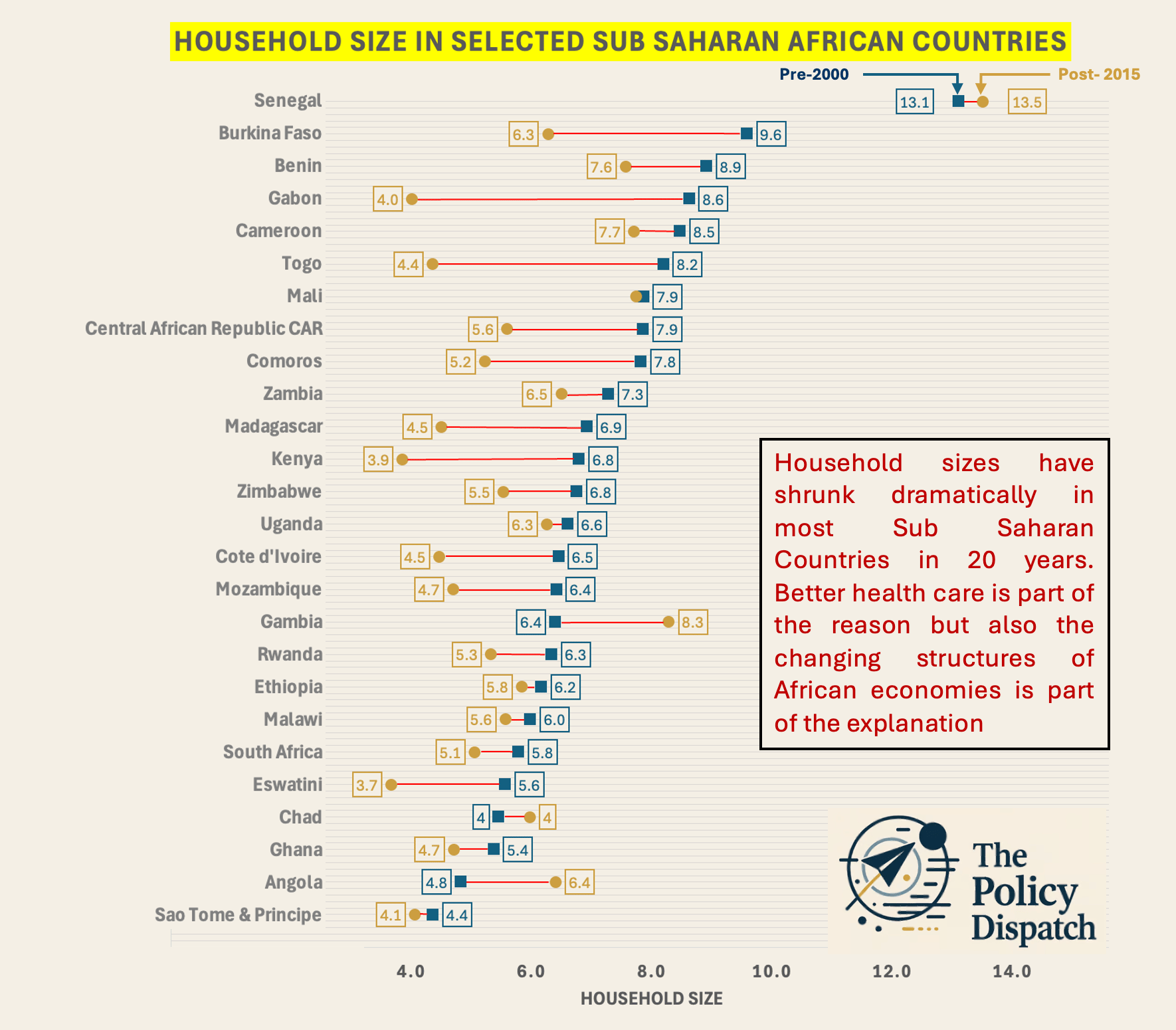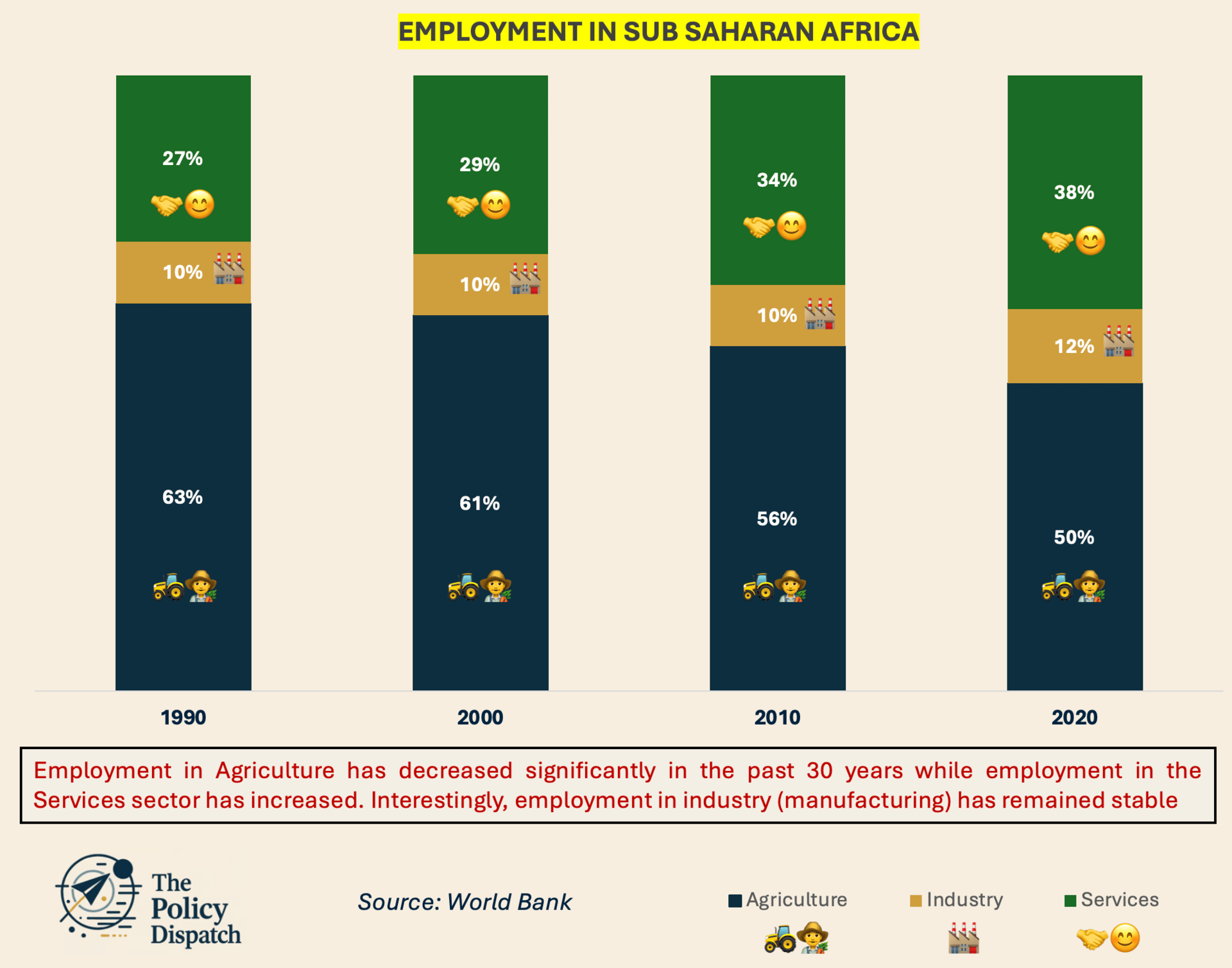
Shrinking Family Size
🌍 How Public Policy is changing Family size and structure in Sub Saharan African countries and what it means for the future

A few decades ago, Africans would have had many siblings as large families was a very prominent thing in Sub Saharan African countries. Now though, African families are becoming smaller in size; following a global trend, albeit a couple of years behind.
There are a few reasons for that. The main one which is most cited is that of better health care which has led to lower mortality rates. According to the World Bank, mortality rate in Sub Saharan Africa has dropped from 23 per thousand in 1960 to 8 per thousand in 2024 which is testament to the improvement in health care. Just recently, the continent celebrated the feat of reducing child mortality beyond the Millennium Development Goals years ahead of its target. Family planning has also played a role boosted by the work of many NGOs.
Beyond all of that though, there is another story : the structure of African economies are changing and that is having an impact on family structure and size. Whereas a few decades, informal employment was the norm, now formal employment is much more common. So too is the number of women working. While the agricultural and resource sectors remain a big part of many African economies, the services sector has been slowly employing more Africans.

The life of an African today is very much different to one three decades ago. The way Africans spend their time has also changed dramatically. While the gap in internet access remains, it has been closing down very fast. By some estimates, people in some African countries spend as much if not more time online than their peers in European countries for example.

From data available, France took more than 150 years to transition from a 5+ member household to a 2.5 member household. Denmark did it a bit faster between 100 - 130 years. While Netherlands took around the same time. Japan though, went from a 5+ member household to a 2.5 member household in barely 100 years. Same for New Zealand. On their current trajectory, most Asian countries will do the transition faster than their European counterparts. It is true to say that Asian countries underwent industrialisation at rapid pace which could be one of the factors that led to a faster transition.
African countries, have historically have had much larger families (7+ member families) as recently as a few decades ago. Their transition to much smaller families seems to be happening faster than Asian and European ones. Take Kenya for example, they went from a 6+ member family household in the 1990s to a 3.9 member household in less than 30 years. There are numerous examples of African countries undergoing such rapid transition.
Changing family structure and future policies
Mainstream economics has often overlooked how family structures influence national politics and the organisation of the state. Emmanuel Todd was amongst the first to argue that differences in family organisations had a direct effect on the state.
It could be argued that today’s political turmoil has part of its root in the changing family structure. The Trump movement dreams of a return of traditional family values with much more children. The lack of family support in European countries can account for the rise of far right movements - Social Breakdown Thesis argues that breakdown of social norms, partially explained by changing family structures, can lead of individuals feeling more isolated wanting have a sense of belonging which makes them more prone to be attracted to nationalist parties.
While these turmoil are not yet to be seen in African countries, they nevertheless pose a number of policy questions.
Will the effect of faster transition in family structures lead to even faster “effects” being seen in African countries ?
Do African countries have the institutions and market reforms in place to replace of tasks previously done by traditional families ? E.g. more elderly care, pensions, child care. Can African countries have institutions that quickly adapt to quick demographic changes ? They seem to have less room for error than other countries.
Will trust erode faster with a faster breakdown in traditional family numbers ?
Will smaller household translate into higher per capital investment in human capital ? less children —> more resources per child —> better nutrition, education, health —> better labour-force quality ?
Will labour markets change more rapidly? Smaller households —> more mobility —> more urbanisation —> easier labour force participation —> more flexible labour market ? The opposite is also possible whereby the economy cannot create formal jobs fast enough to replace informal jobs. This leads to growing slums and higher unemployment
Will households save more or less ?
That’s all for this edition of this week’s newsletter. We’ll be back midweek to cover more policy news.
This week’s newsletter is in collaboration with 1440 Media. Check them out with the link below.
Seeking impartial news? Meet 1440.
Every day, 3.5 million readers turn to 1440 for their factual news. We sift through 100+ sources to bring you a complete summary of politics, global events, business, and culture, all in a brief 5-minute email. Enjoy an impartial news experience.


